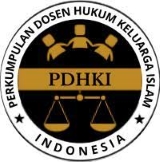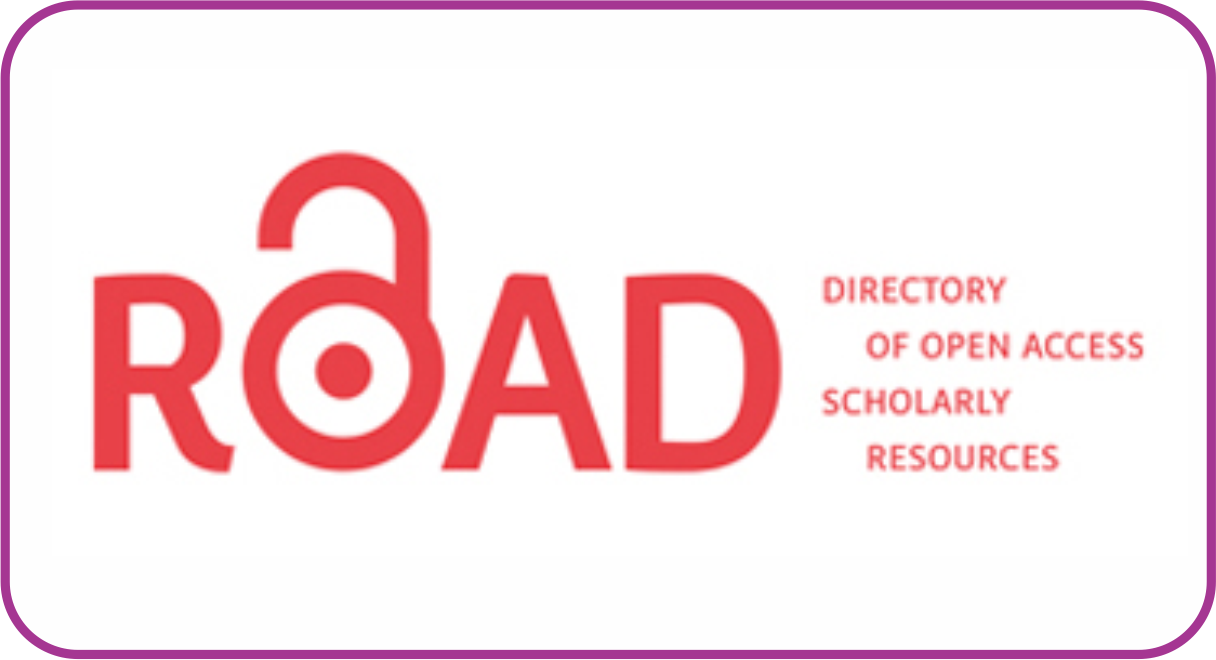FATWA DAR AL-IFTA NOMOR 3598/2006 TENTANG WAKAF SAHAM: TINJAUAN ARGUMENTASI HUKUM DAN IMPLIKASINYA
Abstract
Keywords
Full Text:
PDFReferences
Abdullah, Agung. "Waqf and State Interference: A Phenomenology Study in Al-Azhar University, Egypt." Journal of Finance and Islamic Banking 3.1 (2020): 38-56. https://doi.org/10.22515/jfib.v3i1.2625
Adam, Faraz. "Fatawa analysis of bitcoin”. In Halal cryptocurrency management. Palgrave Macmillan. 2019.
Adam, Panji. Fatwa-Fatwa Ekonomi Syariah: Konsep, Metodologi & Implementasinya pada Lembaga Keuangan Syariah. Jakarta: Amzah, 2022.
Al-Dasuqi, Shams Al-Din. Hashiyyah al-Dasuqi ‘Ala Al-Sharh Al-Kabir. 4th Chapter. Dar Ihya Al-Kutub Al-‘Arabiyyah, n.d.
Al-Khurashi, Abi Abdullah Muhammad. Sharah Al-Khurashi ‘Ala Mukhtasar Khalil. 7th Chapter. Mesir: Al-Kubra, 1317 H.
Al-Misri, Jamal Al-Din Muhammad Ibn Mukarram Ibn Manzur Al-Afriqi, Lisan Al- ‘Arab, Vol. 15. Beirut: Dar Sadr, n.d.
Al-Qaradawi, Yusuf. Al-Fatwa Bayn Al-Indibat Wa Al-Tasayyub. Kairo: Dar Ashowah Lil Nasyir Wa At-Tauzi, 1988
Aly, Wael Omran. "Waqf corporate role to enhance the social entrepreneurship in the Egyptian community: Problems and remedies." Journal of Public Administration and Governance 6.4 (2016): 150-170. http://dx.doi.org/10.5296/jpag.v6i4.10504
Arzam, Arzam, et al. "Legalitas Cryptocurrency: Tinjauan terhadap Fatwa-Fatwa Institusi dan Personal." Al-Muzdahir: Jurnal Ekonomi Syariah 5.2 (2023): 135-148. https://doi.org/10.55352/ekis.v5i2.612
Azmi, Fachruddin. "Pengembangan Manajemen Wakaf Pada Jami’Ah Al Azhar Al-Syarif Mesir." Al-Kaffah: Jurnal Kajian Nilai-Nilai Keislaman 8.1 (2020): 24-49. https://jurnalalkaffah.or.id/index.php/alkaffah/article/view/33
Bisri, Cik Hasan. Model Penelitian Fiqh: Paradigma Penelitian Fiqh dan Fiqh Penelitian. Vol.1. Jakarta: Kencana, 2003.
Cornell University Library, "Library Research at Cornell: Review the Steps", Accessed 22 June 2024, from: https://guides.library.cornell.edu/sevensteps/review
Crecelius, Daniel. “The Organization of WAQF Documents in Cairo.” International Journal of Middle East Studies 2.3 (1971): 266–77. https://doi.org/10.1017/S0020743800001136.
Dar Al-Ifta, "History of Dar al-Ifta", Accessed 22 June 2024, form: https://www.dar-alifta.org/en/about/history-of-dar-alifta
Dar Al-Ifta, " منهج الفتوى في دار الإفتاء", Accessed 30 June 2024, form: https://www.dar-alifta.org/ar/ViewFatawaConcept/%D9%85%D9%86%D9%87%D8%AC-%D8%A7%D9%84%D9%81%D8%AA%D9%88%D9%8A
Fahruroji. Wakaf Kontemporer. Jakarta: Direktorat Pemberdayaan Zak.At Dan Wakaf Direktorat Jenderal Bimbingan Mayarakat Islam Kementerian Agama Republik Indonesia, 2020.
Fatwa Dar al-Ifta No. 3598 of 2006 Abaout Waqf al-Ashumi wa Tasbil 'Awa'idiha
Fauzi, Muhammad, Mursal Mursal, and Muhammad Ridha DS. "Wakaf Pada Asuransi Jiwa Syariah: Analisis Pada Fatwa Dsn-Mui No: 106/Dsn-Mui/X/2016." USRATY: Journal of Islamic Family Law 1.2 (2024): 113-125. https://doi.org/10.30983/usraty.v1i2.7570
Fauzi, Muhammad & Mursal. "Tantangan Dan Peluang Pengembangan Zakat Dan Wakaf". Dalam Ekonomi Islam Dan Penguatan Keuangan Ekonomi Global. Yogyakarta: Jejak Pustaka, 2023.
Hidayah, Nur. Fatwa-Fatwa Dewan Syariah Nasional: Kajian Terhadap Aspek Hukum Islam Perbankan Syariah di Indonesia. Jakarta: UIN Syarif Hidayatullah, 2019.
Kasdi, Abdurrohman. "Dinamika Pengelolaan Wakaf Di Negara-Negara Muslim." ZISWAF: Jurnal Zakat dan Wakaf 4.1 (2018): 73-86. http://dx.doi.org/10.21043/ziswaf.v4i1.3032
Krippendorff, Klaus. Content Analysis; An Indtroduction To Its Methodology. Sage Publication, 2004.
Maksum, Muhammad. Hukum Perwakafan Kontemporer: Pespektif Hukum Islam dan Hukum Positif. Serang: A-Empat, 2017.
Mutthaqin, Muhammad Satrya, and Yenni Samri Juliati Nasution. "Perbandingan Pengelolaan Wakaf di Indonesia, Arab Saudi, Mesir, dan Turki." Economic and Business Management International Journal (EABMIJ) 6.1 (2024): 334-339. https://doi.org/10.556442/eabmij.v6i1.517
Novia, Aidil. "Kontribusi Fiqh Legal Maxim dalam Fatwa-Fatwa Ekonomi Syariah Dewan Syariah Nasional Majelis Ulama Indonesia (DSN-MUI)." TSAQAFAH 12.1 (2016): 79-104. https://doi.org/10.21111/tsaqafah.v12i1.369
Nurfattah, Arizqiya, and Royyan Bachtiar. "Waqf Stock in Securities Companies (Models, and Perspectives of Islamic Social Finance)." Journal of Islamic Economics and Philanthropy 6.2 (2023): 153-167. https://doi.org/10.21111/jiep.v6i2.10806
Neuendorf, Kimberly A.. The Content Analysis Guidebook. Sage Publication, 2002.
Pelu, Ibnu Elmi AS. "Kedudukan fatwa dalam konstruksi hukum islam." El-Mashlahah Journal 9.2 (2019): 167-181.. http://digilib.iain-palangkaraya.ac.id/2655/
Saputri, Oktoviana Banda. "Komparasi Implementasi Pengelolaan Wakaf Uang Sebagai Alternatif Instrumen Kebijakan Fiskal Negara." Jurnal Masharif Al-Syariah: Jurnal Ekonomi Dan Perbankan Syariah 7.1 (2022): 183-211. http://dx.doi.org/10.30651/jms.v7i1.8838
Sugiyono. Metode Penelitian, Kuantitatif, Kualitatif, dan Kombinasi (Mixed Method). Bandung: Alfabeta, 2018.
Sulistiani, Siska Lis. Wakaf uang: pengelolaan dalam hukum Islam dan hukum positif di Indonesia. Jakarta: Sinar Grafika. 2022.
Sunuwati. Hukum Perwakafan. Parepare: IAIN Parepare Nusantara Press, 2022.
Wulandari, Catur Hayati, Saparuddin Siregar, and Aqwa Naser Daulay. "The Potential of Stock Endowment in Indonesia as an Instrument for Islamic Economic Development." MALIA: Jurnal Ekonomi Islam 14.2 (2023): 325.
DOI: https://doi.org/10.24952/almaqasid.v10i2.12192
Refbacks
- There are currently no refbacks.
Copyright (c) 2024 Jurnal AL-MAQASID: Jurnal Ilmu Kesyariahan dan Keperdataan

This work is licensed under a Creative Commons Attribution-ShareAlike 4.0 International License.




2.gif)


















